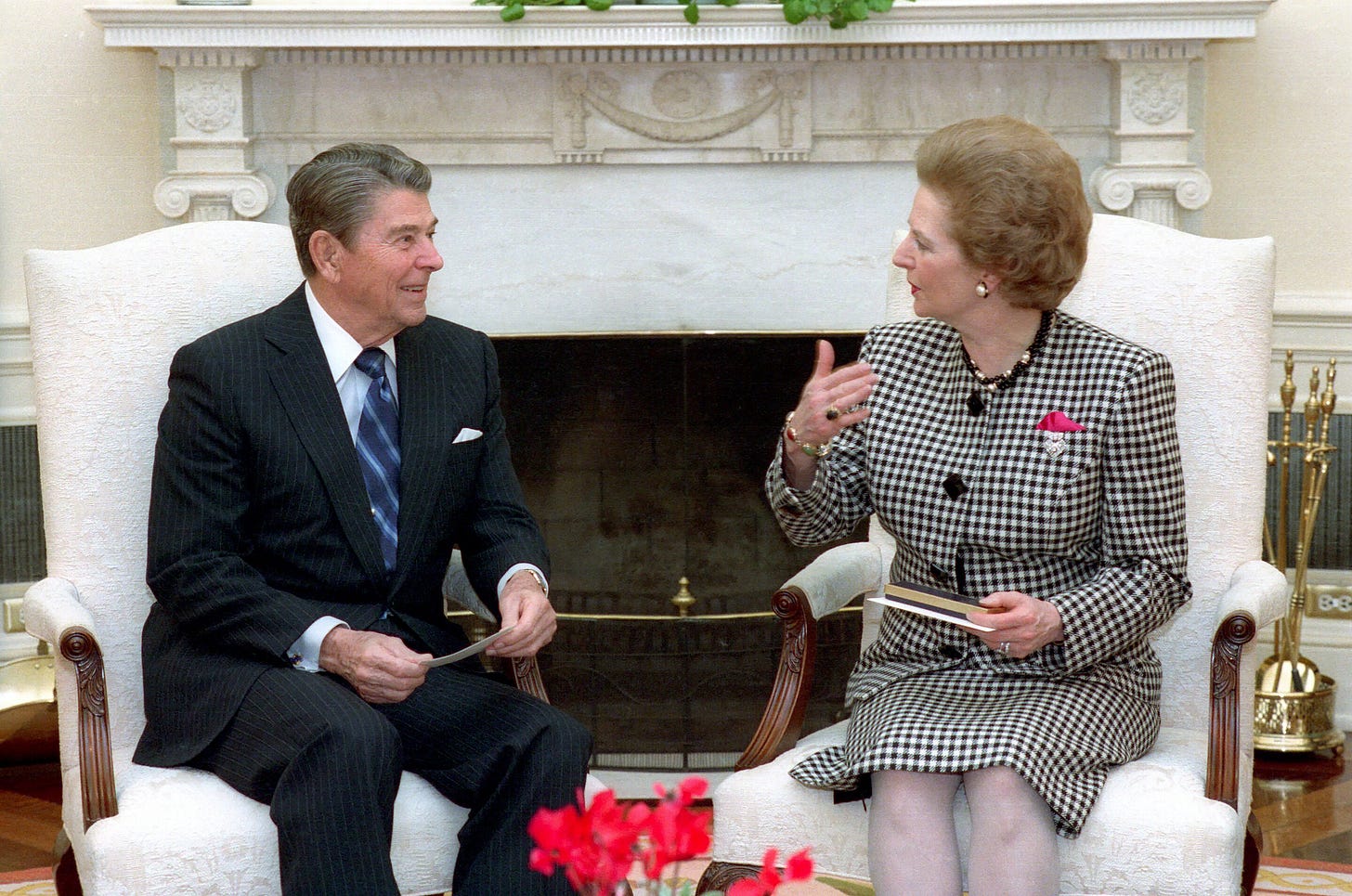Remembering Maggie Thatcher
My remarks on Lady Thatcher's hundredth birthday
When Ronald Reagan and Margaret Thatcher came into office, the Western world was at a low ebb. The 1973 oil crisis had created stagflation. The US had comprehensively lost the Vietnam War. There was a pervasive sense of malaise, embodied in the high-minded but ineffectual presidency of Jimmy Car…



